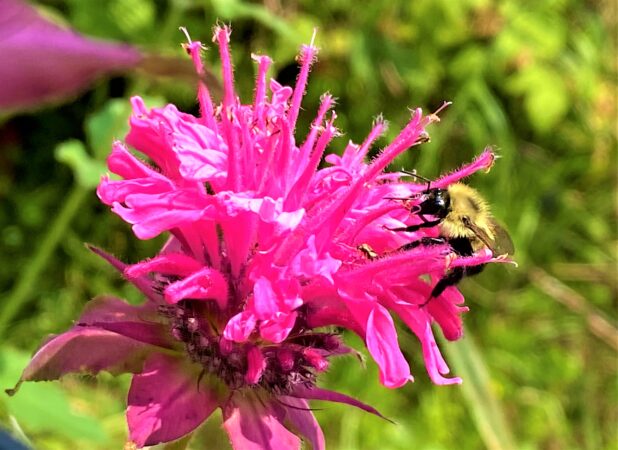Commentary
What are we fighting for?
August 1, 2023

By Nate Smelle
Is there anything more valuable than peace?
Since chatting with the Canadian Peace Museum’s founder and CEO, Chris Houston last week, I have found myself asking this question.
For the majority of Canadians, our understanding of the value of peace is attained through the observations and accounts of others transmitted from the frontlines of an armed conflict, which are then published and broadcast by news agencies operating far away from where the war is being fought. For Houston, one of the relatively few privileged and burdened westerners to experience how it feels to wake up in a war zone every day for months on end, his appreciation of peace runs deep. Learning how even the sound of dropping a plate can trigger the Post Traumatic Stress Disorder he brought home from his humanitarian work in areas engaged in an ongoing armed conflict such as Yemen, Syria, and east Africa, it is easy to understand why he no longer takes the relative peace we enjoy here in Canada for granted.
Before we can appreciate peace we first need to know what it is. Merriam-Webster Dictionary defines peace as, “a state of tranquility or quiet, such as: freedom from civil disturbance; a state of security or order within a community provided for by law or custom; freedom from disquieting or oppressive thoughts or emotions; harmony in personal relations; a state or period of mutual concord between governments; a pact or agreement to end hostilities between those who have been at war or in a state of enmity.”
A state of tranquility or quiet, free from civil disturbance, and disquieting or oppressive thoughts or emotions; with these defining qualities of peace in mind, for most of us living in the Bancroft area, we don’t have to look far to enjoy the peacefulness of our local environment. When I think of the tranquility, harmony, and freedom, I am reminded of the feeling of peacefulness that washes over me when I sit quietly in nature. A short stroll through the forest, watching the sunset light up the sky and water while floating in a canoe, listening to a pair of loons call out to one another from across a lake; these kind of close encounters with peace are within our grasp virtually every single day here in cottage country. Still, despite our relatively easy access to peacefulness, as Houston pointed out, we tend to take it for granted here in Canada.
During our conversation, Houston noted that I should use the word “relative” when referring to peace in Canada, to acknowledge the ongoing history of inequity and legacy of colonization that continues to shape our national identity. In employing “relative as an adjective in this instance, we are confronted with the legacy of violence and oppression that we as Canadians have swept under the rug for far too long. To understand our “relative peace” in Canada, we must take an honest look at the genocide against Indigenous peoples that has taken place throughout Turtle Island since John Cabot landed in Newfoundland in 1497. As painful and unsettling as it might be to come face to face with the evil mindset which allowed the Canadian government in partnership with Anglican, Catholic, Methodist, and Presbyterian churches to steal Indigenous children from their families and inprison them in residential schools as part of a failed attempt to obliterate their culture, it is essential for us to come to terms with these hard truths if we are to sincerely foster reconciliation and find peace.
Understanding such irrefutable truths regarding the inhumanity of our human history demands our undivided attention. As a species we have been fighting with one another far longer than we have been writing about war and publishing newspapers. In fact, everyone of us alive today has spent our entire lives living with war. Fortunately for us here in Canada, unlike our friends in Ukraine, south Sudan, northern Ethiopia, Syria, Yemen, Palestine, and anywhere on the planet where police and thieves carry machine guns in the street on a good day, we are able to go to sleep at night without having to worry about bombs and bullets raining down on us. Considering this is not the case for many humans alive today in 2023, it is a good reason for us to celebrate our relative peace. As Houston will tell you from his firsthand experience of life amid warfare, it is also a great reason for us to not take our relative peace for granted. In a world and time when resources such as fresh air, water, and soil are becoming scarce due to global heating and boiling, it is also critical that we take time to understand the fragility of our relative peace.
In order to understand why peace is so valuable and fragile, we must ask ourselves the following questions: What are we fighting for? Do we not have anything better we could be doing with our time, energy, money, resources, and lives? Are we fighting over resources that we could share for the greater good? Is the human species doomed by its addiction to greed and violence? Why are we so fascinated with violence and not with peace? Do we value our capacity to exterminate the enemy more than we value the peacefulness every living being yearns for? Who is the enemy anyway? You? Me?
The very first written account of war by the Father of History, Herodotus in The Histories of the Greco-Persian wars should have taught us to avoid violence at all costs, by taking time to appreciate the value of peace. As Herodotus wrote, “No one is so senseless as to choose of his own will war rather than peace, since in peace the sons bury their fathers, but in war the fathers bury their sons.”
War, violence, though unavoidable in cases of self-defense, is always a last resort in our quest for peace. The German-born theoretical physicist and famed pacifist, Albert Einstein couldn’t have been more on point in his “Speech to the New History Society” on Dec. 14, 1930, when he reminded the audience, “Peace cannot be kept by force; it can only be achieved by understanding.”
The sooner we realize this and stop waging war on ourselves, the quicker we can get on with nurturing the true progress that comes with peace.
The Canadian Peace Museum is a perfect opportunity to enrich our understanding of the value of peace. In light of the tranquility our natural environment provides, and the relative peacefulness we enjoy here in the Bancroft area day-to-day, why not make Bancroft the Peace Capital of Canada? That, at least from my perspective, is the kind of progress worth getting behind.
So, again, what is it we are fighting for? The only correct answer is peace.




















